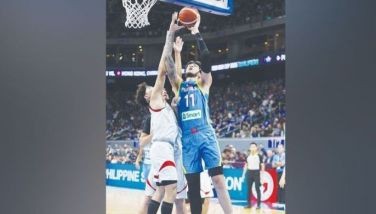JG Summit, four foreign groups eye stake in Equitable PCI Bank
March 9, 2001 | 12:00am
Five groups are expected to submit their bids on March 26 for a stake in Equitable PCI Bank.
The five groups jostling to acquire an interest in the bank are the Fubon Group of Taiwan, Canada-based Newbridge Capital, Spain’s Banco Santander, Development Bank of Singapore and local tycoon John Gokongwei Jr.’s flagship firm, JG Summit Holdings.
Earlier reported to be interested in Equitable PCI Bank, the Rizal Commercial Banking Corp. of the Yuchengco Group, was said to have a change of heart and failed to conduct the required due diligence report that gives potential investors a complete look of the bank’s finances.
"The offer of investors that conducted due diligence will be opened on March 26 and it will already include the pricing of the shares," banking sources said.
Equitable PCI Bank became controversial when its top executives surrendered documents and testified at the Senate impeachment trial against deposed President Joseph Estrada who allegedly opened an account with the bank that came from jueteng proceeds.
As a result, it was met with heavy withdrawals, spurred by fears of the loss of secrecy protection and was reported to have sought liquidity assistance of P30 billion from the Bangko Sentral ng Pilipinas (BSP).
Equitable PCI Bank president Wilfrido Vergara said, however, the bank has regained its depositors and is still stable.
Vergara said the committee created to evaluate the proposals of interested groups have not yet decided on the mode of entry of the investors, whether through a merger or sale of shares, but said the best option is through capital infusion.
Capital infusion is also the preferred tack of the BSP since "real new money" will benefit the bank’s other shareholders, compared to mere disposal of the shares of the bank’s major stockholders which will limit the windfall to a small group.
Vergara said the new investors will probably acquire a 20 to 35-percent stake in the bank that would translate into fresh equity of about P15 billion to P25 billion.
A merger on the other hand, will be harder to work out since it just came from a period of consolidation, following the merger of Equitable Bank and Philippine Commercial International Bank (PCI Bank).
The Gokongwei family got out of the banking business in 1999 when it sold its 27-percent stake in PCI Bank, along with the Lopez family, to the Go family of Equitable Bank and the two state-pension concerns, the Social Security System (SSS) and the Government Service Insurance System (GSIS) which now have a combined 25-percent stake in Equitable PCI Bank.
The merger of PCI and Equitable Bank resulted in the third biggest bank in the country, with combined assets of P255 billion and deposits of more than P160 billion.
The five groups jostling to acquire an interest in the bank are the Fubon Group of Taiwan, Canada-based Newbridge Capital, Spain’s Banco Santander, Development Bank of Singapore and local tycoon John Gokongwei Jr.’s flagship firm, JG Summit Holdings.
Earlier reported to be interested in Equitable PCI Bank, the Rizal Commercial Banking Corp. of the Yuchengco Group, was said to have a change of heart and failed to conduct the required due diligence report that gives potential investors a complete look of the bank’s finances.
"The offer of investors that conducted due diligence will be opened on March 26 and it will already include the pricing of the shares," banking sources said.
Equitable PCI Bank became controversial when its top executives surrendered documents and testified at the Senate impeachment trial against deposed President Joseph Estrada who allegedly opened an account with the bank that came from jueteng proceeds.
As a result, it was met with heavy withdrawals, spurred by fears of the loss of secrecy protection and was reported to have sought liquidity assistance of P30 billion from the Bangko Sentral ng Pilipinas (BSP).
Equitable PCI Bank president Wilfrido Vergara said, however, the bank has regained its depositors and is still stable.
Vergara said the committee created to evaluate the proposals of interested groups have not yet decided on the mode of entry of the investors, whether through a merger or sale of shares, but said the best option is through capital infusion.
Capital infusion is also the preferred tack of the BSP since "real new money" will benefit the bank’s other shareholders, compared to mere disposal of the shares of the bank’s major stockholders which will limit the windfall to a small group.
Vergara said the new investors will probably acquire a 20 to 35-percent stake in the bank that would translate into fresh equity of about P15 billion to P25 billion.
A merger on the other hand, will be harder to work out since it just came from a period of consolidation, following the merger of Equitable Bank and Philippine Commercial International Bank (PCI Bank).
The Gokongwei family got out of the banking business in 1999 when it sold its 27-percent stake in PCI Bank, along with the Lopez family, to the Go family of Equitable Bank and the two state-pension concerns, the Social Security System (SSS) and the Government Service Insurance System (GSIS) which now have a combined 25-percent stake in Equitable PCI Bank.
The merger of PCI and Equitable Bank resulted in the third biggest bank in the country, with combined assets of P255 billion and deposits of more than P160 billion.
BrandSpace Articles
<
>
- Latest
- Trending
Trending
Latest
Trending
Latest
Recommended




























